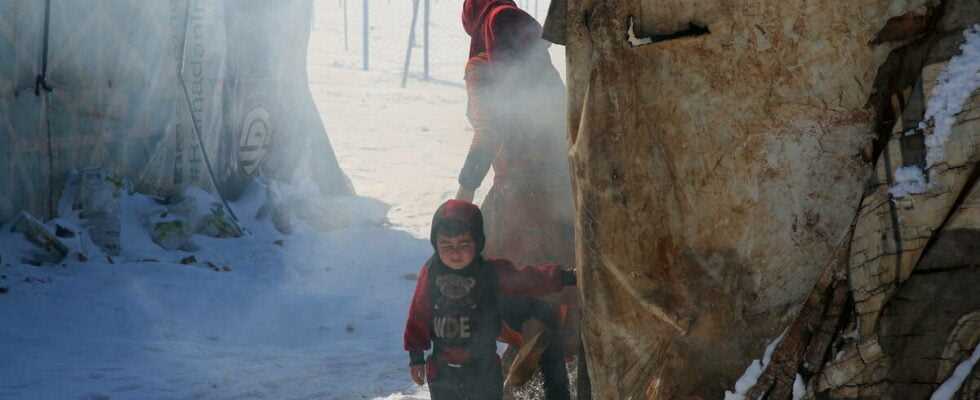Exceptional weather conditions are worsening the humanitarian situation of tens of thousands of people in Syria and Lebanon, at a time when international aid has been reduced.
Misery is much more cruel under the snow, could confirm the Syrian refugees to Charles Aznavour. The unusual cold snap that is hitting the entire Middle East these days has dramatic consequences for hundreds of thousands of families living in tents or in makeshift shelters. At least three children have died in the Idlib region this week. Two in the fire of their tent caused by an oil stove and the third in the collapse of a shelter under the weight of the snow. More than 200 tents have collapsed on the heads of their occupants and nearly 700 refugees are homeless, reports the Syrian Observatory for Human Rights (OSDH).
Snowstorms hit the camps in northern Syria where more than 1.5 million people live in very difficult conditions, but also in Jordan or Lebanon where the only camp in Arsal, on the Syrian border , brings together some 50,000 refugees. The images posted on social networks by local residents or NGOs speak for themselves. Like the photo of a child under ten standing between several tents at night, barefoot in his flip flops on the snowy ground. Videos show the men and women scraping snow from their tents before bedtime to lighten them, preventing them from collapsing as the flakes continue to fall.
“Some burn clothes, tires…”
By alerting to “catastrophic consequences” of these climatic conditions for vulnerable populations, the NGO Care indicates in a press release: “The reality depicted by our colleagues in the field is nightmarish: they brought us the testimony of a woman who said she could not sleep at night because she was constantly checking to see if her children were still alive.”
These climatic circumstances are aggravating an already alarming situation at a time when international humanitarian aid for Syrian refugees has been drastically reduced. All international agencies and NGOs operating on the ground are calling for help. In the Idlib region, several essential health structures had to be closed recently due to the lack of means of the international medical organization supporting them. Care emphasizes that “Food, medicine and drinking water are sorely lacking. In an attempt to warm up, some burn clothes and tires, which can endanger their health. In some camps, this has led to fires starting.”
“But where could we go if the tents no longer protect us?” shouts at the camera an old lady, all in black in the middle of the landscape all white with snow and fog. “Will we ever live in real houses?” asks the Syrian grandmother in the country where more than half of the population has been displaced by eleven years of conflict.
